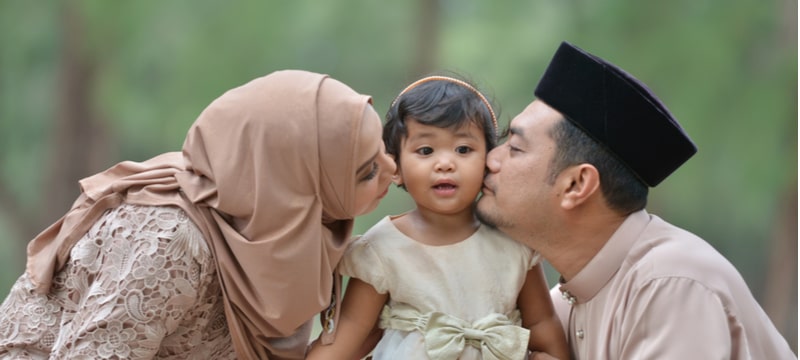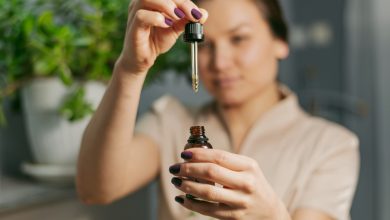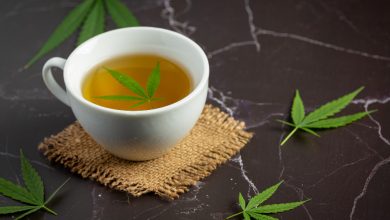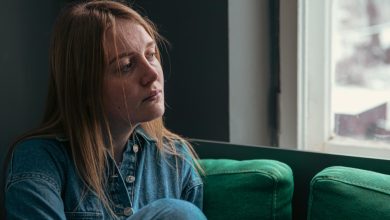
CBD in Malaysia is a much-contested topic. In Malaysia, government legislation has completely banned cannabis and all its forms. This, of course, includes CBD.
In fact, Malaysia classifies cannabis – and all its derivatives – as dangerous drugs. Under the Dangerous Drugs Act of 1952, individuals who possess over 200 grams of cannabis are immediately deemed drug traffickers. If convicted, these individuals can face capital punishment, in the form of a death sentence.
However, if found in possession of 50 grams or under, the situation is slightly less bleak. In this case, and if convicted, these individuals, could face up to 10 years in prison. Therefore, procuring, and using CBD in Malaysia, is an extremely high-risk process.
But in the case of Pokleh, who uses CBD as an alternative treatment to his daughter's cavernoma, there is no other option.
Table of Contents
What is a cavernoma?
A cavernoma, in a nutshell, is an abnormal collection of vessels. These vessels contain blood-filled caverns – hence the name. They span various sizes and can occur on the brain, or the spinal cord.
On the brain, cavernomas can cause headaches, seizures, and loss of physical function. It can also cause bleeding in the brain, which could lead to a stroke, or stroke-like symptoms. On the spinal cord, cavernomas can cause spinal cord injury.
While painkillers can help treat symptoms like headaches, they offer no respite from the actual cavernoma itself.
So far, the only treatment for cavernomas is through removal. This is an invasive procedure — one that is taken very seriously, due to common cavernoma locations. Therefore, this option might not be for everyone.
Ira's story, and how it led to CBD
In November 2019, Ira, Pokleh's one-year-old daughter, developed a high fever. It crushed the toddler's young body, leaving her unconscious. Upon rushing her to the hospital, doctors discovered several cavernomas in her brain.
Doctors attempted to treat her symptoms for three long weeks, unable to do anything else. Pokleh and his wife, Anna, strongly objected to surgery. Research, statistics, and medical records all reflected that Ira would likely not survive an invasive procedure, anyway.
For a while, Ira remained in this condition – unspeaking, and unmoving. Her parents grew desperate. “I felt so helpless,” Pokleh said, in conversation with Coconuts, a Malaysian news outlet. “There has to be another way.”
Then, Pokleh struck gold. One day, he came across Weed the People, a Netflix docu-series. The series follows several people, based in the United States. These individuals use CBD as an alternative treatment for their children with cancer.
This idea stuck with Pokleh. However, getting CBD in Malaysia was – and continues to be – a gargantuan task. This didn't deter Pokleh, nor did the threat of prison.
Procuring CBD in Malaysia
Thankfully for Pokleh, getting a bottle of CBD oil was a fairly straightforward process. Pokleh managed to purchase a 50-serving bottle from a Thai retailer. He completed the transaction via Facebook, and received the bottle three days later.
Upon Ira's return from the hospital, Pokleh completely changed her wellness routine. Instead of administering medicine prescribed by the hospital, Pokleh would instead give her five drops of CBD oil, daily. Gradually, Pokleh and Anna began to notice improvements.
When Ira was first diagnosed with cavernomas, Pokleh and Anna had to come to terms with the fact that she might spend the rest of her life paralysed. However, by treating her with CBD over several months, they began to see a positive difference. Ira could move her fingers and toes, and at long last, roll over.
“It felt slow, but day by day, she was getting better,“ Pokleh said. By this time, Ira was crawling again. With time, Ira re-learned how to run, play, and eat normally. According to Pokleh and his wife, their little Ira was back.
Pokleh credits this gradual improvement to CBD. However, even with its effect on their daughter, Pokleh and his family cannot legally avail of CBD in Malaysia. This put them in a new predicament: with Ira improving in leaps and bounds, what would Pokleh tell the doctors?
Heading back to the hospital
The hospital scheduled Ira for another consultation three weeks after she first started taking CBD oil. However, with CBD deemed illegal throughout Malaysia, how could Pokleh explain her sudden, steady improvement? After all, admitting to giving his daughter – merely a child – CBD in Malaysia could land Pokleh in prison, with the threat of capital punishment.
With his wife pregnant, and his daughter recovering from a cavernoma diagnosis, this was out of the question. Furthermore, they couldn't exactly hide Ira's progress. At the hospital, she walked around, talking to and playing with strangers.
The doctors were awestruck. This was almost a different child, from the one they diagnosed with cavernomas months ago, and sent home merely three weeks ago. During her appointment, doctors tested Ira's reflexes, marvelling at the improvement.
However, the real surprise came a little later, when doctors conducted an MRI scan. Here, they noted a significant reduction in her cavernoma sizes. As this rapid turnaround was practically unheard of, the spotlight turned to Pokleh.
However, with all forms of CBD in Malaysia deemed illegal, he couldn't very well admit to this alternative treatment. Instead, Pokleh turned the spotlight onto Ira's doctors. The doctors listened to Pokleh, accepting his thanks. Thankfully, they didn't further question Ira's recovery.
Pokleh expressed reluctance at wanting to disclose what really helped his daughter. “I could be accused of committing a crime,” he told Coconuts. “But as a dad, I didn't have a choice.”
From his demeanour, it's clear that he would do it all again – despite the risks of possessing CBD in Malaysia. He constantly expresses how grateful he is for Ira's second lease of life.
Ira, now and then
Two years have passed since Ira's initial struggle with cavernomas. According to Pokleh, she doesn't recall a moment of it, for which he's thankful. Pokleh says that he's asked her about it before, and showed her pictures.
Each time, Ira seems to shrug it off, eager to resume playing with her friends. Both Pokleh and Anna are still astonished – and grateful – at their daughter's rapid turnaround. Ira is even supposed to start kindergarten soon, along with the rest of her agemates.
However, despite her quick recovery, Pokleh and his wife are still cautious. In fact, Ira still takes a drop of CBD daily. Pokleh is determined to administer Ira's daily CBD drop, as long as her cavernomas continue to show up on scans. Despite the risks that go into procuring CBD in Malaysia, Pokleh won't give up, believing that it's the only thing that can help his daughter.
Key takeaways: CBD in Malaysia – a valid cure?
Ira's case is proof that CBD could, in fact, be a valid treatment for children with cavernomas. However, Malaysians like Pokleh are reluctant to speak up. According to Malaysian law, CBD in Malaysia is indistinguishable from cannabis. Therefore, speaking on its use – and on children, no less – could land parents in prison, or worse.
Until it's fully legalised, Malaysians will have to continue to use it in secret, with no proper guidelines – except those available on the internet. By taking steps towards CBD legalisation in Malaysia, parents can access proper guidelines regarding helping their children. This could also be a good way to ensure that CBD is safe, legal, and accessible throughout Malaysia.




